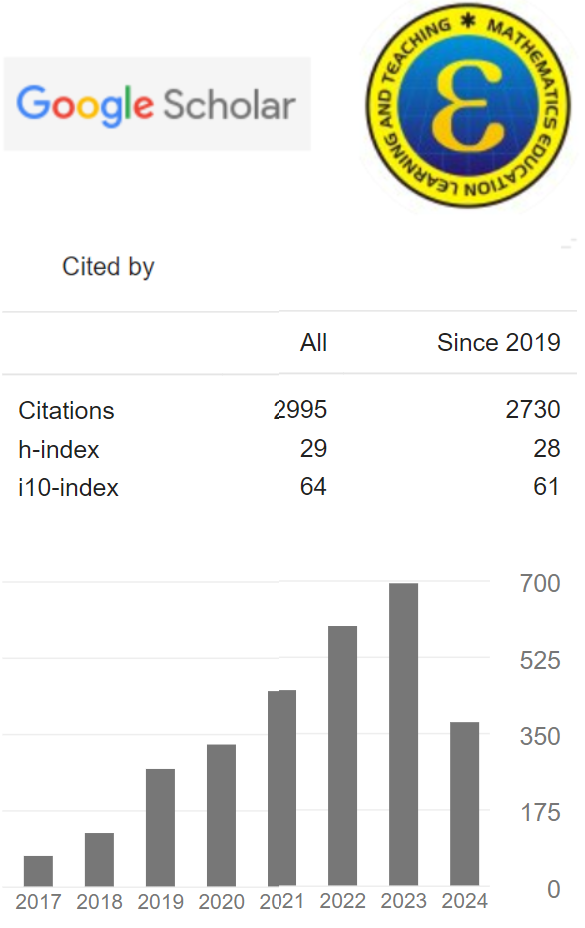The Impact of Online Learning through Students’ Mathematical Habit of Mind
(1) Mathematic Education, Department of Mathematisc and Science Education, Lampung University
(2) Mathematic Education, Department of Mathematisc and Science Education, Lampung University
(3) Mathematic Education, Department of Mathematisc and Science Education, Lampung University
(*) Corresponding Author
Abstract
Keywords
Full Text:
PDFReferences
Costa, A. L., & Kallick, B. (2000). Describing 16 Habits of Mind. Habits of Mind: A Development Series. Alexandria, VA.
Costa, A. L., & Kallick, B. (2009). Habits of mind across the curriculum: Practical and creative strategies for teachers. ASCD.
Irawan, Y., Susanti, N., & Triyanto, W. A. (2015). Analisa dan perancangan sistem pembelajaran online (e-learning) pada smk mambaul falah kudus. Simetris: Jurnal Teknik Mesin, Elektro dan Ilmu Komputer, 6(2), 345-352. Retrived from https://jurnal.umk.ac.id/index.php/simet/article/view/471
Oxford learner dictionary (2020). Oxford learner dictionary. Retrieved from www.oxfordlearnersdictionaries.com
Putranti, N. (2016). Cara Membuat Media Pembelajaran Online Menggunakan Edmodo. Jurnal Pendidikan Informatika dan Sains, 2(2), 139-147. Retrived from http://journal.ikippgriptk.ac.id/index.php/saintek/article/view/224
Rustaman, N. Y. (2008). Habits of Mind in Learning Science and its Assessment. Bandung: Indonesia University of Education.
Setiawati, E. (2014). Mengembangkan Kemampuan Berpikir Logis, kreatif, dan Habits of Mind Matematis Melalui Pembelajaran Berbasis Masalah: Eksperimen terhadap Siswa Madrasah Aliyah (Doctoral dissertation, Universitas Pendidikan Indonesia). Retrieved from http://repository.upi.edu/6583/.
Waryadi, W., Kadir, K., & Rahayu, W. (2019). Effect of Bamboo Dance Learning Model and Early Ability Against Habit of Mind Mathematical Students. Journal of Development Research, 3(2), 52-59. Retrived from http://journal.unublitar.ac.id/jdr/index.php/jdr/article/view/76
Wicaksono, S. R. (2012). Kajian Pembelajaran Online Berbasis Wiki Di Lingkup Perguruan Tinggi. Journal of Education and Learning, 6(1), 51-58.
DOI: 10.24235/eduma.v9i2.7156
Article Metrics
Abstract view : 2 timesPDF - 0 times
Refbacks
- There are currently no refbacks.
Copyright (c) 2020













